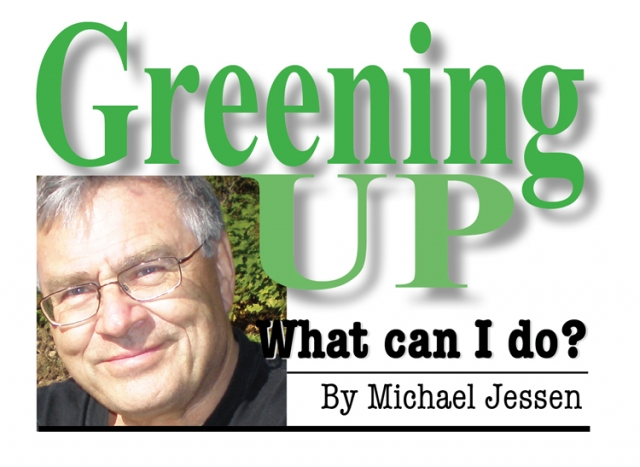Wellbeing Beyond Christmas
“Once our personal connection to what is wrong becomes clear, then we have to choose: we can go on as before, recognizing our dishonesty and living with it as best we can, or we can begin the effort to change the way we think and live.”
– Wendell Berry
Changing behaviour is one of the hardest things for a human being to do.
It is even harder to think of change at a time like Christmas, a season filled with traditional celebrations, foods, music, ornaments, lights, folklore, stories, pantomimes, and films.
There is an unwritten law that Noel is a two-week period in which humans must enjoy themselves, whatever their customs or beliefs.
Psychological research conducted in the U.S. by Tim Kasser and Kennon Sheldon of Knox University in Illinois found that around three-quarters of the respondents had a satisfactory Christmas holiday whereas only 10% had a very bad Christmas holiday.
Their 2002 study did find just under half of the sample (44%) said they had a stressful Christmas despite being satisfied. Their research also showed that more happiness was reported during the holiday period when family and religious experiences were particularly important, and lower wellbeing occurred when spending money and receiving gifts predominated.
Males reported greater levels of happiness and less stress than females and older respondents reported greater Christmas joy. There were no differences on any other demographic factors including income, education, or marital status (being rich, clever and in a relationship does not appear to have any influence on how good Christmas is).
Kasser and Sheldon concluded that the materialistic aspects of modern Christmas celebrations may in fact undermine psychological wellbeing, while family and spiritual activities may help people to feel more satisfied.
Psychological wellbeing be damned
A survey by the BMO Financial Group has found Canadians will be in a spending mood this Christmas with respondents planning to pay out an average of $674 for gifts this year, compared to an average of $583 last year – a 15% increase. Respondents said their overall holiday season spending will increase $200 from last year to an average of $1,810.
While this may be music to the cash registers of retail stores who rely on November and December sales for 25 to 30 percent of their annual business, analyst Ed Strapagiel forecasts total retail sales will only increase close to 2.5 percent over last year, excluding the automotive sector. Deloitte, one of Canada’s leading financial advisory service firms, predicts a 2 to 2.5 percent rise in retail sales this holiday season.
Canadians got an early start to the online shopping season with Cyber Monday sales figures reported as the biggest in history. Figures released by Moneris, the largest Canadian credit and debit card processor, show Canadian online sales were up 29.33 percent on Cyber Monday compared to last year. The online growth outpaced traditional retail, as Canadian Black Friday sales rose 19.19% year over year.
If our economy isn’t growing, is it dying?
These numbers demonstrate that the average Canadian probably agrees with Nelson Mayor John Dooley who said at a recent civic function that “if your city’s not growing, it’s dying.”
Trouble is perpetual growth isn’t possible on a finite planet.
In his book Collapse: How Societies Choose to Fail or Survive, author Jared Diamond writes that Easter Island is “the clearest example of a society that destroyed itself by overexploiting its own resources”. He then invites readers to see this case study as a “metaphor, a worst-case scenario for what may lie ahead of us in our own future”.
But a greater problem with the mayor’s conclusion is viewing death as the opposite of not growing. If we choose to believe this, we will be marching ourselves toward the mouth our own extinction.
Using more and more resources so we can continue to buy or build more stuff is not how we should base our present and future economy. The purposes of human life are more diverse and exciting than addictive materialism.
Our obsession with maximizing economic growth and GDP overlooks the importance of people’s happiness and wellbeing as a measurement of a successful and sustainable society.
Leave fossil fuels in the ground
Eight books I read this year make this abundantly clear – Supply Shock: Economic Growth at the Crossroads and the Steady State Solution by Brian Czech; The Burning Question: We Can’t Burn Half the World’s Oil, Coal and Gas. So How Do We Quit? by Mike Berners-Lee and Duncan Clark; The Ethics of Climate Change: Right and Wrong in a Warming World by James Garvey; Cold, Hungry and in the Dark: Exploding the Natural Gas Supply Myth by Bill Powers; Enough is Enough: Building a Sustainable Economy in a World of Finite Resources by Rob Dietz and Dan O’Neill; Little Black Lies: Corporate & Political Spin in the Global War for Oil by Jeff Gailus; The Race for What’s Left: The Global Scramble for the World’s Last Resources by Michael Klare; and The Upcycle: Beyond Sustainability – Designing for Abundance by William McDonough and Michael Braungart.
A theme running through all the books is humanity’s necessity to decarbonize by leaving fossil fuels in the ground. Without that major step, we are risking catastrophic climate change impacts.
The sixth annual Maplecroft Climate Change and Environmental Risk Atlas reveals that 31 percent of global economic output will be based in countries facing ‘high’ or ‘extreme risks’ from the impacts of climate change by the year 2025 – a 50 percent increase on current levels and more than double since the company began researching the issue in 2008.
Just as I am writing this, Nafeez Ahmed reports in The Guardian on research published by the U.S. National Academy of Sciences warning that climate change impacts could be worse than previously thought. The series of papers published by the Proceedings for the National Academy of Sciences shows that policymakers might be underestimating the social and economic consequences of climate change due to insufficient attention on how different climate risks are interconnected.
It is clear that we are conducting an experiment on planet Earth and we have no definitive idea what the results will be.
So where’s the good news?
In his commencement address to the class of 2009 at the University of Portland, Paul Hawken said: “At present we are stealing the future, selling it in the present, and calling it gross domestic product. We can just as easily have an economy that is based on healing the future instead of stealing it. We can either create assets for the future or take the assets of the future. One is called restoration and the other exploitation.”
There is no doubt about what our goal should be: a “diverse, safe, healthy and just world with clean air, water, soil, and power – economically, equitably, ecologically, and elegantly enjoyed” as McDonough and Braungart define it.
It’s about the long-term qualitative improvement of the human condition, which can be pursued indefinitely. It’s about more spiritual growth and less material growth. It’s about unlocking certain habits and changing them in the right direction. It’s about discovering what enough is. It’s about understanding what to do with the information we have.
Barbara Kingsolver writes: “The cure involves reaching down into ourselves and pulling out a new kind of person.”
The most inspiring and hopeful book that I read this year is Mary Pipher’s The Green Boat: Reviving Ourselves in Our Capsized Culture. Pipher, a psychologist and the author of nine books, illustrates how we can conquer our fears about climate change and transform them into a positive force in our lives.
Writing from her own experience working in an organization opposing the Keystone XL pipeline in Nebraska, Pipher advocates taking small steps in the company of others to preserve what is important to ourselves and the planet. As union leader Joe Hill said just before he was wrongfully charged and hung: “Don’t mourn; organize.”
Pipher quotes writer Rebecca Solnit, who wrote: “The prevalent human nature in disaster is resilient, resourceful, generous, empathetic, and brave.” Pipher adds: “Disasters offer humans the chance of transcendence. They give us an opportunity to grow into bigger selves.”
Things start small, get bigger, and get small again
The most enlightening book I read this year was a 790-page novel published in 1995. It was a miraculous find in the ‘free books’ box at the Nelson Public Library.
Entitled Antarctic Navigation, the book traces the life of Morgan Lamont from early girlhood to expedition leader to the South Pole, haunted by the ill-fated 1910-13 journey of British explorer Robert Falcon Scott.
The book so captivated me that I had to Google its author, Elizabeth Arthur. Imagine my surprise when I discovered that Arthur attended Nelson’s Notre Dame University in 1977-78, a fact which gave me a whole new intimate connection to the book.
Arthur lovingly portrays Antarctica as the last fragile wilderness on the planet and her descriptive first-person narrative almost reads like a non-fiction diary. She writes that stories – like live things – start small, get bigger, and then get small again.
“We are enamored of the process of growth, because the Western tradition that we are part of loves the middle, the big part,” Arthur writes near the end of the book. “We don’t like to think about the smallness on the far side.”
Northern Gateway recommended for approval
“So no wonder we like best the pleasant growing,” she adds.
Arthur comments: “But nevertheless, we must put a halt to it now. Must learn from other cultures, other times, how to regulate ourselves and control our actions. We must go even beyond what has been done before, and learn, for the first time in human history, that sometimes staying right where you are is the best thing that you can accomplish.”
Although a joint review panel has recommended the federal government approve Enbridge’s Northern Gateway pipeline project, with 209 conditions, this does not make the project a fait accompli. This is not a project that is in humanity’s best interest; it will be strangled in legal proceedings, perhaps for years.
While this is happening, we can heed the words of Rebecca Tarbotton, the first female executive director of the Rainforest Action Network who died last January while vacationing in Mexico:
“We need to remember that the work of our time is bigger than climate change. We need to be setting our sights higher and deeper. What we’re really talking about, if we’re honest with ourselves, is transforming everything about the way we live on this planet. We’re talking about re-embedding the economy within the limits of nature.”
We must slow down – if not put to an end – that pleasant growing. We must embrace efficiency by doing more with less. We must divest ourselves from fossil fuels. We must learn to design, sustain, and love living in a healthy, diverse, just, equitable world. As Arthur writes, “things happen fast, and once they happen, they’ve happened”.
In times of trouble, roll up your sleeves
In his book Zorba the Greek, author Nikos Kazantzakis writes: “To live is to roll up your sleeves and embrace trouble”.
This Christmas and New Year, let us all choose to roll up our sleeves, resolve to change a behaviour we know needs changing, refuse to believe we are powerless, and set about to see what we can accomplish. It is time for the unmoved majority to take action.
We must stop our petro culture from killing our planet; the choice we have is not whether, but how we change ourselves. The health and wellbeing of Mother Earth is our social responsibility.
Michael Jessen is a Nelson eco-writer, energy specialist and owner of the consultancy Zero Waste Solutions. He can be reached by email at zerowaste@shaw.ca
RESOURCES – An article about Kasser and Sheldon’s research is at http://christmasunwrapped.wordpress.com/tag/psychology/
BMO’s Holiday Spending Outlook can be found at http://newsroom.bmo.com/press-releases/2013-bmo-holiday-spending-outlook-consumers-plan–tsx-bmo-201311060909354001
Ed Strapagiel’s Canadian retail sales analysis is at http://strapagiel.com/retail-sales-analysis-Canada.html
Deloitte’s 2013 Holiday Retail Outlook is at http://www.deloitte.com/view/en_CA/ca/industries/consumerbusiness/retailerswholesalersdistributors/holiday-survey-2013/index.htm
Yahoo Finance reported Cyber Monday and Black Friday sales numbers in an article at http://ca.finance.yahoo.com/blogs/dashboard/canada-cyber-monday-sales-hit-record-141717612.html
Mayor John Dooley’s quote can be found in a Nelson Star article at http://www.nelsonstar.com/news/235490531.html
Maplecroft’s Climate Change and Environmental Risk Atlas 2014 can be accessed at http://maplecroft.com/portfolio/new-analysis/2013/10/30/31-global-economic-output-forecast-face-high-or-extreme-climate-change-risks-2025-maplecroft-risk-atlas/
Nafeez Ahmed’s column is at http://www.theguardian.com/environment/earth-insight/2013/dec/17/planet-climate-change-risk-drought-famine-epidemic
Mary Pipher has a website at http://www.marypipher.net/
Elizabeth Arthur’s website is http://www.elizabetharthur.org/



























Comments